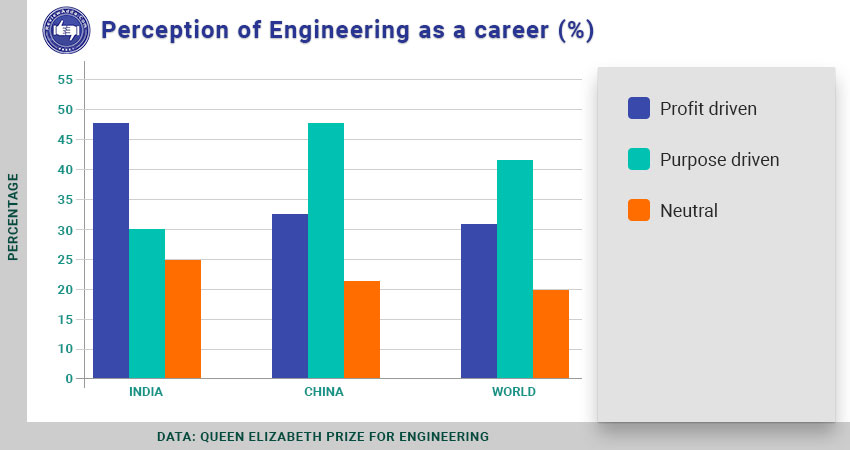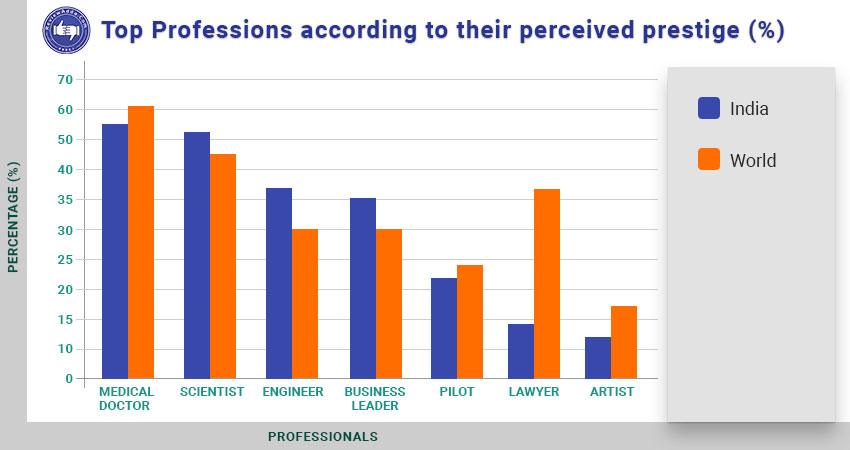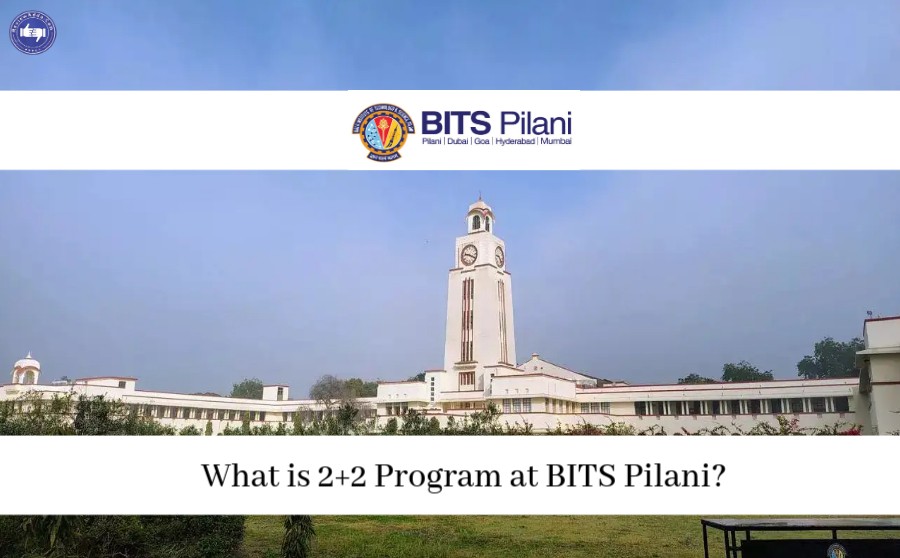Topic We Cover: Study Abroad MBA vs MS
1. MBA vs MS abroad: Genesis
2. MBA vs MS: Introspection
3. FOR CANDIDATES WITHOUT WORK EXPERIENCE (FRESHERS)
4. FOR CANDIDATES WITH 3-5 YEARS OF WORK EXPERIENCE (FRESHERS)
6. MBA vs MS: Brass tacks
7. MBA vs MS: Summary
Management and Engineering have been the cogs which have been on the vanguard for course-specific obsession amongst students in India.

MBA and MS have become the most preferred choices amongst engineering graduates for post-graduation
The clamour for technical courses such as B.Tech and B.E has changed the way Indian education operates. A recent report ordained by Queen Elizabeth Prize for Engineering suggested nearly 80% students in India prefer engineering over all other fields of study. While some may suggest such a scientific temper amongst young students is laudable, ‘80%’ is simply too skewed towards engineering.
This statistic is almost unique to Indian students. In other countries where this survey was conducted such as USA, Japan, Turkey, UK and Brazil, the percentage of students interested in engineering was between 30-50%. So why are Indians and more specifically, Indian students joining the engineering bandwagon?
Shruti Mishra, a Career Guidance Counselor based in Delhi extrapolates her opinion behind the mad rush. ‘A great problem with the school education is the apparent lack of incentives. Students find absolutely no motivation to study as they are not aware of the benefits of studying and more importantly, learning. Thus, when they finally realize the highly incentivized structure of B.Tech which literally guarantees a job after graduation, students find it hard to turn down such a prospect’
Shruti makes an interesting point regarding the lack of incentives attached with most courses other than engineering during undergraduate studies. She further added, ‘No undergraduate course incorporates a full-fledged placement programme besides B.Tech. If a student does not want to pursue postgraduate studies, B.Tech is the best bet’
The rise of MBA can also be explained using the same inherent principle. Even though MBA is a course designed primarily for management graduates, most top MBA Colleges in India are filled with engineering graduates. Deep Kumar, a fellowship student at a top B-school in Mumbai explains the reasoning behind the presence of so many engineers in some of the best MBA Colleges in India.
‘MBA Entrance Exams Test students for their skills in mathematics, logical reasoning, English aptitude and quantitative ability. A good B.Tech course trains a student in all these areas. This is why engineers find it easier to crack such exams which are otherwise found to be difficult by commerce and humanities students’
Should there then be a special quota for students with a commerce background? ‘I vehemently disagree with such a notion’ says Deep. ‘You are looking for the best future management talent in the country. If engineers represent such a category, so be it. A better suggestion would be to improve the admission parameters rather than reserving seats outright’
MBA vs MS abroad: Genesis
MBA and MS represent two distinct courses each with their own depth and intricacies. So why do they clash in the first place?
The answer lies in the growing popularity of MS or Master of Science Course.
MS Abroad has become a phenomenon amongst B.Tech graduates. The chance to pursue postgraduate studies at some of the best colleges in the world for STEM education is a very exciting prospect for many students.
M.Sc and M.Tech courses offered in India lack the quality and incentives which are strikingly apparent in a MBA in India and even more so in a MS abroad. Between the two obvious prospects, which suit students best?
This key contrast is the fundamental reason behind the whole argument between MBA and MS. Though they differ on the basis of pure semantics, the situational aspect of these two courses often brings prospective students to a crossroads.
MBA vs MS: Introspection
If you are also amongst the group who are confused between these two lucrative options, it is important to ask yourself the following questions. Bear in mind, we are assuming the candidates are engineering graduates.
FOR CANDIDATES WITHOUT WORK EXPERIENCE (FRESHERS)
- What was your motive behind choosing engineering as a major for graduation?
Every decision is taken based on reasons. Any decision taken without any reason isn’t a decision at all, but simply intuition.
Matters such as choosing a field of study for graduation are not supposed to be based on intuition. If you chose engineering as a field of study because you were passionate about science and its overarching applications, maybe a MBA isn’t a very good idea. Similarly, if you chose engineering based purely on monetary incentives after graduation, MBA is the perfect option.
While you have a choice to change your field of profession after graduation, such a choice won’t present itself after post-graduation. For this very reason, analyzing decisions made previously to make choices for the future is a very sensible and rewarding exercise.
- Where do you see yourself in the next 5-10 years?
Clichés are hard to digest, but clichés are sometimes fitting.
Do you see yourself working on the Wall Street trading floor as a Chief Strategy Advisor or does the prospect of being a potential CTO candidate at a software conglomerate excite you more?
These may be exaggerated logical extremes, but the answer fundamentally predicates your choice between MBA and MS. You know yourself better than anyone else.

While engineering is popular, its purpose is deemed to be profit-based by a majority of India which is at odds with the data from other countries
As a statutory advice, do not compromise by going for a field contrary to your answer to the aforementioned question. We all try to live a life in hopes of achieving some kind of distinction at some point of time. By compromising, you will hurt your being more than anything else.
- What do recent MS and MBA graduates have to say?
An important part of your decision should be to take into consideration the experience of recent MS and MBA graduates.
For instance, some rumblings from MS graduates from universities in the US bring up the issue of finding employment in the US itself. Since the US is a much developed economy than India, finding a job in a technical position is comparatively tedious there due to highly specific selection criteria.
Similarly, getting admission to the very top MBA Colleges is a tough ask to begin with. Taking admission to a lowly college for MBA is extremely risky considering the surety of employment and return on investment after graduation.
All these questions can be answered comprehensively by alumni who have already completed their degrees. Online Education-Based Sites offer students the platform to interact with MBA and MS graduates who are willing to share their experiences and help students.
- What are MBA and MS graduates doing in their professional lives 5-10 years down the line?
If you want to become an elite banker, wouldn’t you want to know where a MBA Graduate currently stands after passing out eight years back? Similarly, wouldn’t MS aspirants want to know where yesteryears MS graduates are in their careers?
The entire purpose behind pursuing postgraduate studies is to accelerate your career from its previous position. To understand where a MBA degree or a MS from a foreign university will land you, it is imperative to talk to professionals and seek their advice. Platforms such as LinkedIn provide students the chance to find professionals who have done their MBA and MS degrees to see where they have reached on their career paths.
As many historians like to say, ‘The road to the future is written in the past’
- Does the course structure and curriculum entail the knowledge and skills you need to take yourself to the next level?
Though it sets a bad precedent, consider both MBA and MS Courses as products being offered by colleges or companies. Does the product solve any problem of yours? Is the solution being provided by the product worthwhile? Is it worth spending money on the product?
Some courses at some colleges are brilliant while others aren’t as famous. For instance, Purdue is extremely popular for aeronautical and mechanical engineering while not as famous for MBA studies. Similarly, the IITs are famous for their B.Tech degree but not as popular for postgraduate courses.
The only way to know whether the course suits your needs is by analyzing the nuts and bolts of the curriculum in question. Furthermore, it is also advisable to read some of the work the faculties of the institution have published to get a feel of the learning focus and methodology of the institution.
FOR CANDIDATES WITH 3-5 YEARS OF WORK EXPERIENCE (FRESHERS)
- Are you happy in the field you are currently working in? (presumably engineering)
The reasons why some engineers choose MBA after working for a while in a technical position are many. Besides money and the lure of management, some engineering graduates find the load of technical tasks to cumbersome and monotonous to bear.
 Get Updated Review ( Voice Based Alumni Feeback)
Get Updated Review ( Voice Based Alumni Feeback)
-
 Check Review (Alumni Feedback) - Lovely Professional University - [LPU] – Click Here
Check Review (Alumni Feedback) - Lovely Professional University - [LPU] – Click Here -
 Check Review (Alumni Feedback) - Amity University – Click Here
Check Review (Alumni Feedback) - Amity University – Click Here -
 Check Review (Alumni Feedback) - Chitkara University – Click Here
Check Review (Alumni Feedback) - Chitkara University – Click Here -
 Check Review (Alumni Feedback) - Chitkara University – Click Here
Check Review (Alumni Feedback) - Chitkara University – Click Here -
 Check Review (Alumni Feedback) - Ansal University – Click Here
Check Review (Alumni Feedback) - Ansal University – Click Here
Similarly, some engineers choose to pursue MS in the hopes of delving deeper into the technical aspects of their field. This allows them to take up a greater role in the overall scheme of things on the technical side.
Thus, it is imperative for you to decide whether you are satisfied with the work you are doing at your current company. If engineering isn’t stimulating you enough and you are counting the minutes every day, it might be time to switch to another line of work. Similarly, if you want to rise high and fast in the technical side of things, an MS From a Top University abroad will propel your career within two years.
- Are you ready to give up the pay-check for two years, maybe more?
Money can become a resource to enticing to give up, especially if you have gotten used to a certain lifestyle.
Whether you wish to pursue MS or MBA, you will have to devote two years atleast to postgraduate education. Many candidates simply cannot fathom the prospect of leaving a job for two years for further studies. Some have financial restrains, some are in a good position at their company while some simply do not have the patience to prepare for postgraduate admissions, let alone attend college for the course.

Science related fields enjoy the most favourable perception amongst the Indian public
If you find yourself in such a category, steer clear of harbouring any aspirations for MBA or MS. Pursuing admission to courses such as MS and MBA requires optimal devotion and single-mindedness.
- Will MBA or MS take you where you really want to be?
The story of Amit Arora is a fascinating tale of searching all the places in the world to find the treasure, only to find out it was buried in your backyard all along.
Amit became a mechanical engineer in 2007 from a reasonably well known college in Maharashtra. After working for two years with a top automotive company, Amit realized engineering wasn’t his cup of tea. He had always wanted to become a writer, but due to repeated conversations with his father, he chose to study for MBA Entrance Exams.
After becoming a postgraduate with an MBA Degree in 2014, Amit was hired as an investment banker by a top banking firm. He left the position after two years realizing even banking didn’t agree with him. By this time, his father gave up trying to convince him. Having no road to turn to, Amit casually started writing stories on his blog. One of his stories managed to catch the attention of one of the most illustrious literary agents in India. Amit is now an established author with two bestselling novels to his name.
Did he need a MBA degree? Did he need a B.Tech Degree or a MS?
No. All he needed was the courage to trust his instincts. Many people make the mistake of pursuing MS and MBA by treating them as customary degrees. You should only pursue post graduation if you are certain about the field of study you are getting into.
MBA vs MS: Brass tacks
A popular analogy to the MBA vs MS scramble is the ‘Generalist vs Specialist’ question.
A generalist is a professional who is capable of carrying out multiple tasks from an array of fields to certain degree of acceptability. They are interested in knowing the practical aspects of running a business rather than knowing the nuts and bolts of each specific operation.
MBA Degree Holders and aspirants are usually kept in the generalist category as they are expected to operate on a much broader scale.
A specialist on the other hand is an expert in his/her line of work. There would seldom be any task which would drive a specialist out of his/her depth if the task is from his/her line of work.
MS Degree Holders and aspirants are clubbed in the specialist category as they carry the expectation of fulfilling all the tasks of a given department.
At the end of the day, you have to make a final decision on where you want to career to be headed. A career in science requisites utmost dedication and endeavour as it necessitates constant learning of new concepts.
Management , on the other hand, is a field requiring a well-knit set of intrapersonal skills. Though it doesn’t necessitate as much learning, it does mandate the professional to refine his/her managerial skills constantly.
MBA vs MS: Summary
The summary of the points made previously has been tabulated below.
|
Factor |
MBA |
MS abroad |
|
Flexibility |
Tailor-made for students who value flexibility in the field they wish to get into |
Very specific to the field major. Not flexible at all |
|
Real world practicality |
Recognized by all management professionals |
Recognized only in the domain of the specialization |
|
Focus areas |
Is focused on covering topics from marketing and finance to logistics and technology |
Varies from field to field |
|
Requirements (to apply for entrance exam) |
A graduate with some mathematical background until high school |
Graduate in engineering or science |







